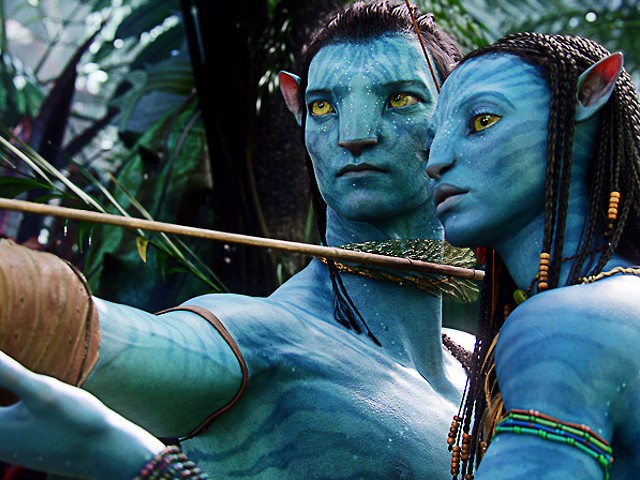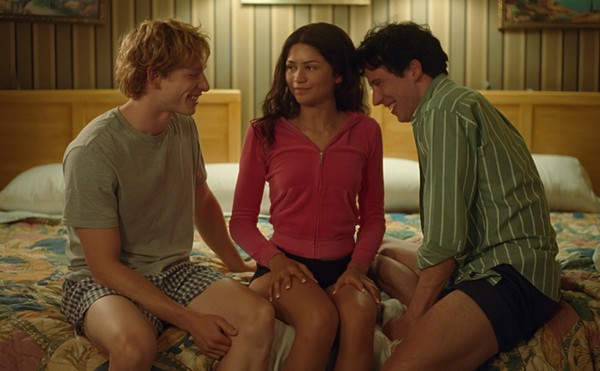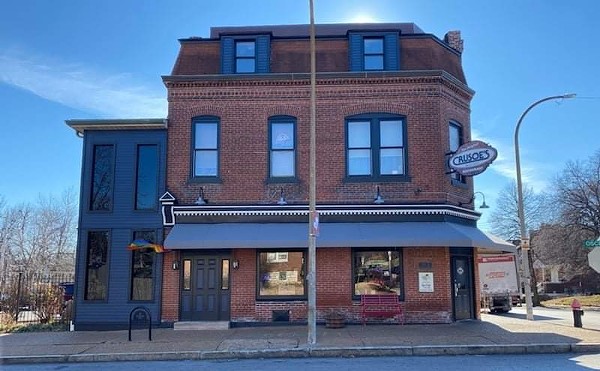The most significant American artist before Andy Warhol to take "the media" as his medium, Orson Welles lives on not only in posthumously restored director's cuts of his re-released movies but as a character in other people's novels, plays, and movies — notably Richard Linklater's deft, affectionate and unexpectedly enjoyable Me and Orson Welles.
Like Tim Robbins' far less adroit Cradle Will Rock, released exactly a decade ago, Me and Orson Welles concerns a legendary Welles stage production, namely his 1937 black-shirt version of Shakespeare's Julius Caesar. This cut-and-paste anti-fascist spectacle — characterized in its original press material as the "Death of a Dictator" and in a frantic state of revision up until opening night — was the Mercury Theatre's first Broadway show. It was also its 22-year-old director's personal triumph, if more for his bravura use of lighting and bare-bones stagecraft to evoke the spectacle of mob rule than his distracted performance as the bumbling "bourgeois intellectual" Brutus.
Adapted from a novel by high school English teacher Robert Kaplow, Linklater's movie views Welles' achievement from the perspective of a high school student (teenage heartthrob Zac Efron), slightly younger but scarcely less stage-struck or brash. Dubbed "Junior" by Welles (British actor Christian McKay), the lad brazens his way into a minor part as Brutus' lute-strumming page, a week before the play is set to open. "You're not getting anything except the opportunity to be sprayed by Orson's spit," Welles' assistant (Claire Danes) good-naturedly warns him, scarcely out of her teens and pleased to play the worldly older woman. Actually, the callow but competent Junior gets away with quite a bit (up to a point) even as he learns something about performing and human nature — or at least about the nature of Orson Welles.
So do we, thanks to a rich — bordering on plummy — performance by McKay, who previously inhabited this part in the Off-Broadway one-man show Rosebud: The Lives of Orson Welles. McKay's vocal impression of Welles is pitch-perfect, and he nails Welles' ironic twinkle and assured, mocking self-importance. McKay portrays the shamelessly hammy, hilariously patronizing, craftily manipulative Welles learning how to play Welles — that his performance is clearly modeled on Welles' own as the young Charles Foster Kane actually enriches Citizen Cane in retrospect. Me and Orson Welles doesn't lack for vivid turns — including Danes' ambitious college girl, Eddie Marsan's distracted John Houseman, James Tupper's affable Joseph Cotten and Ben Chaplin's high-strung George Coulouris — but McKay naturally steals the show, even as Welles steals Junior's girl.
For all of its virtues, Me and Orson is not perfect. The thrifty period mise-en-scene is oversaturated with '30s popular music (although not, curiously, the modernist-cabaret score Marc Blitzstein provided for the stage production) and the screenplay gives only a perfunctory sense of the era's Popular Front politics (Clifford Odets' Golden Boy opened on Broadway one week before). But, percolating with backstage banter and behind-the-scenes maneuvering, Me and Orson is a spirited, confident, and even edifying piece of work. Welles takes Junior along when he rushes off to do a radio play, with the airy assurance that one can learn all that needs to be known about radio drama in an hour. (Actually, it only takes ten minutes — the length of this richly comic sequence.) Linklater's climactic opening night provides a similarly convincing précis of Welles' production. It's easy to understand why, despite drama critic George Jean Nathan's celebrated dis ("Playing Julius Caesar in modern dress strikes me as being of a piece with playing Room Service in togas"), the production was a tremendous success.
Would that Linklater had quit while he was ahead. Burdened by an unnecessary subplot featuring Zoe Kazan's aspiring writer, Me and Orson goes disconcertingly soft toward the end — throwing away the provocative notion that the entire episode might have been Junior's classroom daydream for a more conventional closer. This nod to naturalism is itself cancelled out by the sentimental addition of Orson's sotto voce "thank you" directed to the back of the long-suffering Houseman. This momentary deflation of the Welles ego is the least convincing moment in the film.





